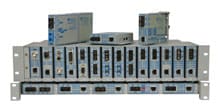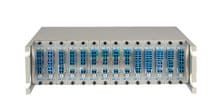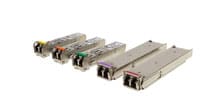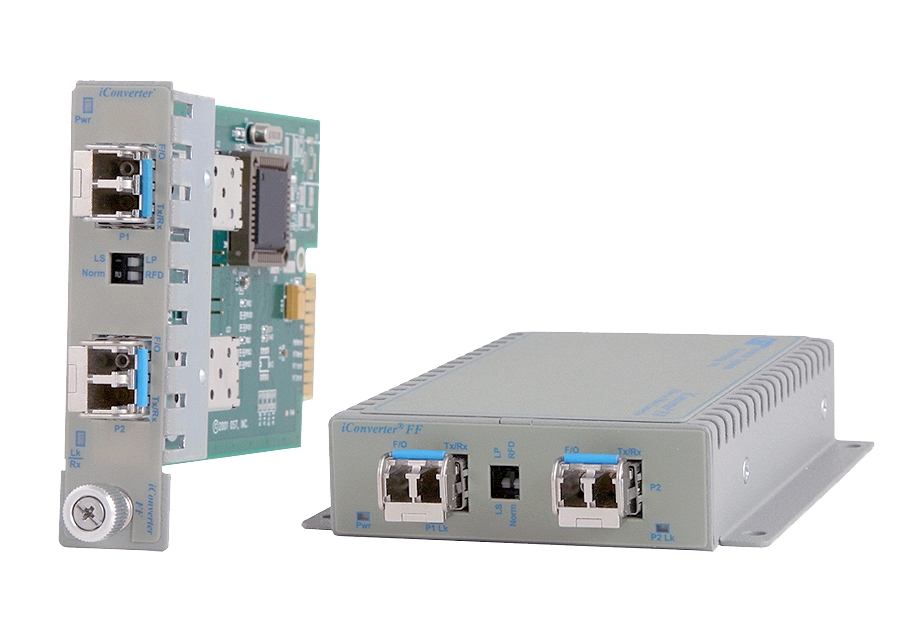- Products
- PoE Media Converters and Switches
- Ethernet & PoE Switches Product Selector
- Multi-Gigabit Ethernet and PoE Switches
- PoE PSE Commercial Switches
- PoE PSE Industrial Fiber Switches
- PoE Industrial Copper Extenders
- PoE Powered Media Converters
- PoE PSE Media Converters
- PoE Extenders & Injectors Product Selector
- Pluggable Transceivers Product Selector
- Product Lines
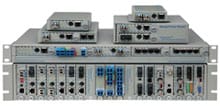
- iConverter Managed Multi-service Platform
- Copper to Fiber Media Converters
- Ethernet Media Converters
- 10 Gigabit Copper-to-Fiber
- 10/100/1000 Copper to 10 Gigabit Fiber
- 10/100/1000 Copper-to-Fiber with Integrated Management
- 10/100/1000 Industrial Copper-to-Fiber with Integrated Management
- 10/100/1000 Copper-to-Fiber with VLAN
- 10/100/1000 Dual Media Converter with VLAN
- Gigabit Copper-to-Fiber
- 10/100 Copper-to-Fiber with Integrated Management
- 10/100 Industrial Copper-to-Fiber with Integrated Management
- 10/100 Copper-to-Fiber with VLAN
- 10/100 Copper-to-Fiber
- Fast Ethernet Copper-to-Fiber
- Fast Ethernet Redundant Links
- 10Mbps Copper-to-Fiber
- 10Mbps Copper to Coax
- TDM Media Converters
- Serial Media Converters
- Ethernet Media Converters
- Fiber to Fiber Media Converters
- 10 Gigabit Fiber-to-Fiber Converter and Transponder
- 10 Gigabit Industrial Converter and Transponder
- SFP-to-SFP Fiber Converter and Transponder
- SFP-to-SFP Industrial Fiber Converter and Transponder
- Gigabit Fiber to-Fiber with 3 Rs
- 100/1000 Fiber-to-Fiber with 3 Rs
- Gigabit Fiber-to-Fiber
- Fast Ethernet Fiber-to-Fiber with 3 Rs
- Fast Ethernet Fiber-to-Fiber
- OC-3/STM-1 Fiber-to-Fiber
- OC-12/STM-4 Fiber-to-Fiber
- Carrier Ethernet Network Interface Devices
- CE 2.0 - 10G Demarcation NID
- CE 2.0 - 10G Demarcation and Aggregation NID
- CE 2.0 - 10/100/1000 Mult-port NID
- CE 2.0 - 10/100/1000 Mult-port NID with PoE
- CE 2.0 - 10/100/1000 8-Port NID
- SFP NID - Gigabit SFP NID
- microNID - 100/1000 compact NID
- CE 1.0 Service OAM - 10/100/1000 NID
- CE 1.0 Link OAM - 10/100/1000 Copper-to-Fiber NID
- CE 1.0 Link OAM - 10/100 Copper-to-Fiber NID
- CE 1.0 Link OAM - Gigabit Fiber-to-Fiber NID
- CE 1.0 Link OAM - Fast Ethernet Fiber-to-Fiber NID
- CWDM Multiplexers
- T1/E1 Multiplexers
- Ethernet Switch Modules
- Management System
- Chassis Options

- 1-Module Industrial Chassis
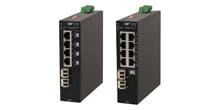
- RuggedNet Industrial Switches and Extenders
- Industrial PoE PSE Fiber Switches
- Multi-Gigabit Managed Industrial PoE+/BT Switches
- Multi-Gigabit Unmanaged Industrial PoE+/BT Switches
- 10G Managed 802.3bt PoE Switches
- 10G Unmanaged 802.3bt PoE Switches
- 10G Managed PoE+ Switches
- 10G Unmanaged PoE+ Switches
- 1G Managed PoE+ Switches
- 1G Unmanaged PoE+ Switches
- 1G Unmanaged 802.3bt PoE Switches
- 1G Managed 802.3bt PoE Switches
- Industrial Ethernet Switches
- Industrial PoE Copper Extenders
- Industrial Power Supplies

- OmniConverter Media Converter, Switches and Extenders
- PoE PSE Media Converters
- 10G Multi-Gigabit / Multi-Rate PoE Media Converter
- 10G Multi-Gigabit / Multi-Rate Media Converter
- 10/100 Multi-port PoE+ Media Converter
- 10/100 PoE+ Media Converter
- 10/100/1000 Multi-Port PoE+ Media Converter
- Industrial 10/100/1000 Multi-Port PoE+ Media Converter
- 10/100/1000 PoE+ Media Converter
- 10/100/1000 PoE++ 60W-100W Media Converter
- Industrial 10/100 Multi-port PoE+ Media Converter
- 1U Rack-Mount Shelf
- PoE PSE Compact Switches
- Multi-Gigabit Managed PoE+/BT Switches
- Multi-Gigabit Unmanaged PoE+/BT Switches
- 10G Managed 802.3bt PoE Switches
- 10G Unmanaged 802.3bt PoE Switches
- 10G Managed PoE+ Switches
- 10G Unmanaged PoE+ Switches
- 1G Managed PoE+ Switches
- 1G Unmanaged PoE+ Switches
- 1G Managed 802.3bt PoE Switches
- 1G Unmanaged 802.3bt PoE Switches
- Ethernet Switches
- PoE Copper Extenders
- Single Pair Ethernet Converters
- PoE Injectors
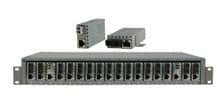
- miConverter Unmanaged Miniature Media Converters
- 10/100/1000 Copper-to-Fiber
- Industrial 10/100/1000 Copper-to-Fiber
- 10/100/1000 Ultra-Compact Copper-to-Fiber
- Gigabit Copper-to-Fiber
- 10/100/1000 Copper-to-Fiber PoE Powered
- 10/100 Copper-to-Fiber
- 10/100 Ultra-Compact Copper-to-Fiber
- 10/100 Copper-to-Fiber PoE Powered
- 18-Module Chassis
- Industrial 10/100 Copper-to-Fiber PoE Powered
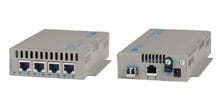
- FlexSwitch Compact Switches
- Solutions
- Company
- Support
- How to Buy
Industrial Media Converters vs. Commercial Media Converters: Key Differences

At Omnitron Systems, we understand the importance of choosing the right media converter to meet your network's needs. Media converters bridge the gap between copper Ethernet and fiber optic systems, making them essential in expanding and optimizing networks. Two primary options exist: industrial media converters and commercial media converters. While they perform similar tasks, their designs and applications vary significantly, making it crucial to select the right solution for your environment.
This guide explores the key differences between these converters, including advanced solutions like industrial Ethernet media converters, industrial Ethernet to fiber media converters, and industrial fiber media converters to help you make an informed decision.
What Are Media Converters?
An introduction to the role and purpose of media converters.
Media converters enable seamless communication between copper Ethernet and fiber optics, allowing networks to expand beyond the limitations of traditional cabling. They are widely used to extend transmission distances, improve data reliability, and ensure compatibility across mixed media networks.
While both industrial and commercial converters perform these tasks, their build, durability, and features make them suitable for different environments.
What Is an Industrial Media Converter?
An industrial media converter is engineered for harsh operating environments, such as manufacturing floors, outdoor installations, and transportation systems. These rugged devices are critical for ensuring network reliability under extreme conditions.
Key Features of an Industrial Media Converter
- Durability: Constructed with robust enclosures to withstand dust, moisture, and vibrations.
- Temperature Tolerance: Operates in a wide range of temperatures, from -40°C to 75°C or higher.
- Electromagnetic Interference (EMI) Resistance: Ensures reliable performance in noisy electrical environments.
- Power Redundancy: Dual power inputs maintain uptime during electrical interruptions.
- Advanced Diagnostics: Tools like Link Fault Pass-Through (LFP) and remote monitoring simplify network troubleshooting.
Applications of Industrial Media Converters
- Industrial Ethernet Networks: Provide reliable connections in factories and production lines.
- Smart Cities: Power IoT devices in outdoor and urban environments.
- Transportation Systems: Ensure stable communication in railways, highways, and aviation.
- Energy Sector: Support networks in wind farms, solar plants, and oil rigs.
What Is a Commercial Media Converter?
Commercial media converters are designed for controlled indoor environments like office buildings and data centers. They deliver cost-effective performance for applications that don’t require the ruggedness of industrial models.
Key Features of Commercial Media Converters
- Cost-Effective: Budget-friendly for businesses with standard networking needs.
- Compact Design: Space-saving and easy to integrate into office setups.
- Limited Durability: Best suited for temperature-controlled, low-stress environments.
- Basic Diagnostics: Features like LED indicators for simple monitoring.
Applications of Commercial Media Converters
- Corporate Offices: Enhance Ethernet-to-fiber connections for improved data transmission.
- Retail Stores: Support POS systems and basic surveillance setups.
- Residential Use: Facilitate small-scale fiber-to-home networking.
- Data Centers: Ensure efficient communication between servers.
Comparing Industrial and Commercial Media Converters
Durability and Environment
- Industrial Media Converters: Built to withstand harsh conditions, including extreme temperatures and vibrations.
- Commercial Media Converters: Suitable only for stable, indoor environments.
Cost
- Industrial Media Converters: Higher upfront investment for robust features.
- Commercial Media Converters: Affordable solutions for less demanding settings.
Applications
- Industrial Media Converters: Ideal for manufacturing, transportation, and outdoor use.
- Commercial Media Converters: Best for offices, retail, and residential environments.
Longevity
- Industrial Media Converters: Designed for long-term use in tough environments.
- Commercial Media Converters: May require frequent replacements in challenging conditions.
| Feature | Industrial Media Converters | Commercial Media Converters |
|---|---|---|
|
Environment |
Designed for harsh environments with extreme temperatures, dust, and moisture. |
Suited for stable, indoor environments like offices and data centers. |
|
Durability |
Rugged metal enclosures with IP ratings for protection. |
Lightweight and less durable, typically plastic or basic metal cases. |
|
Temperature Range |
Operates in a wide range (-40°C to 75°C or higher). |
Limited to standard room temperatures (0°C to 50°C). |
|
Electromagnetic Interference (EMI) |
Shielded against high levels of EMI in industrial areas. |
Minimal EMI protection, adequate for low-interference environments. |
|
Power Supply |
Redundant power inputs for uninterrupted operation. |
Standard single power input with no redundancy. |
|
Diagnostics |
Advanced tools like Link Fault Pass-Through (LFP) and remote monitoring. |
Basic LED indicators for status monitoring. |
|
Longevity |
Built for prolonged use in challenging conditions. |
Shorter lifespan in rugged or demanding environments. |
|
Applications |
Suitable for factories, smart cities, transportation, and outdoor installations. |
Ideal for offices, retail stores, and residential applications. |
|
Cost |
Higher initial cost due to durability and features. |
More cost-effective for standard networking needs. |
|
Bandwidth |
Supports high-speed data transmission, including 10Gbps or more. |
Typically supports standard Ethernet speeds up to 1Gbps. |
Advanced Types of Industrial Media Converters
Industrial Ethernet Media Converter
An industrial Ethernet media converter connects Ethernet devices to fiber networks, ensuring robust data transmission in high-stress environments.
Industrial Ethernet to Fiber Media Converter
This converter bridges Ethernet to fiber, allowing high-speed data transmission over long distances, making it a popular choice in transportation and energy industries.
Industrial Fiber Media Converter
An industrial fiber media converter supports fiber-to-fiber connections, providing compatibility between multimode and single-mode networks.
When to Choose an Industrial Media Converter
Determining when industrial solutions are the best fit for your network.
Consider an industrial media converter when your network:
- Operates in challenging environments with extreme temperatures or moisture.
- Requires protection against EMI or physical damage.
- Demands high uptime and reliability for critical systems.
- Needs advanced diagnostics and monitoring for seamless operation.
When to Choose a Commercial Media Converter
Determining when a commercial solution is appropriate.
A commercial media converter is ideal if your network:
- Functions in a stable, temperature-controlled indoor environment.
- Has budget constraints and does not require rugged features.
- Supports non-critical applications like office networking.
- Requires a simple and compact solution for Ethernet-to-fiber connections.
FAQ: Industrial Media Converters and More
Answering common questions about media converters.
WHAT IS THE MAIN DIFFERENCE BETWEEN AN INDUSTRIAL AND A COMMERCIAL MEDIA CONVERTER?
Industrial media converters are designed for extreme environments, offering durability and reliability, while commercial converters are built for stable indoor settings.
CAN I USE A COMMERCIAL MEDIA CONVERTER IN AN INDUSTRIAL SETTING?
No, commercial converters lack the durability and features to withstand harsh conditions.
WHAT IS AN INDUSTRIAL ETHERNET TO FIBER MEDIA CONVERTER?
It’s a converter that bridges Ethernet to fiber networks, enabling long-distance, high-speed data transmission in rugged environments.
ARE INDUSTRIAL MEDIA CONVERTERS WORTH THE COST?
Yes, for applications requiring durability, reliability, and high performance, the investment in industrial converters pays off in the long term.
HOW DOES AN INDUSTRIAL FIBER MEDIA CONVERTER DIFFER FROM OTHER CONVERTERS?
An industrial fiber media converter focuses on fiber-to-fiber connections, ensuring compatibility across different fiber modes in industrial settings.
Conclusion
Choosing between an industrial or commercial media converter depends on your network’s requirements and environment. For demanding applications, Omnitron Systems offers a range of industrial media converters, including industrial Ethernet to fiber media converters and industrial fiber media converters, designed for maximum reliability and performance. If your needs are simpler, commercial converters provide an affordable and effective alternative.
By partnering with Omnitron Systems, you can ensure your network operates efficiently, regardless of its environment or application.

